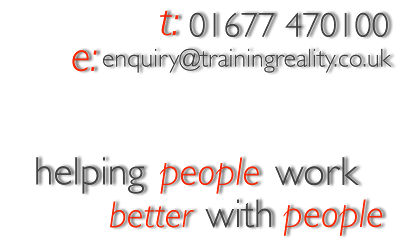Please press (at least!) one of these.
It costs you nothing, and (possibly) helps us spread the word!
Blaming inanimate objects
Thursday, 31 May 2012
A recent experience reminded me of a very common human trait, and a very unhelpful one at that. A portable camping gas cooker "exploded" and, on discussing the incident with those involved, the initial response was that there was a flaw with either the stove or the gas canister. With a lot of very careful questioning, and examination of the equipment, it soon became abundantly clear that user error was the cause.
In everyday life, this happens all the time. Blaming an alarm clock for not arriving somewhere on time; blaming the Sky+ box for not recording a show; or blaming a car for breaking down. The reality is that, on occasion, the device is to blame. On a greater number of occasions, we know it's not, but it's an easy way out, and an excuse to hide behind. More worrying is the third category - the one where we don't even consider any cause other than the unhelpful inanimate object.
In business, and in training, the latter category is one that really needs addressing. Too often, processes are blamed for things going wrong; IT bears the brunt of our frustration when things don't work; and production lines are held responsible for quality issues. There are three key reasons why this is a massively unhelpful approach:
It absolves you of responsibility
This is the single most worrying reason. Whatever has happened is absolutely nothing to do with me - it's the fault of "the thing". You might be able to live with this in ignorant bliss, but the problem is that "the thing" will keep doing its thing, and therefore you're essentially giving control over something potentially important to "the thing". You're essentially saying that you are powerless - not a nice place to be...if you actually become aware of it.
It absolves you from your need to change
If, or when, something else (or someone else) is viewed as responsible for something, the window of opportunity for personal development is kept firmly closed. Why should I change my behaviour because my car has broken down? Well, perhaps if I ensured it got serviced regularly, or drove it with more mechanical sympathy...but those those thoughts won't occur to me if it is simply "the car's fault". My alarm clock isn't loud enough, or is too easy for me to reach over and switch off whilst I'm still asleep. Well, perhaps if I moved it...but again, that's about changing my behaviour.
It absolves you from ownership of improvement
The equipment was designed to be used for a certain purpose and to be used in a certain way. The shrug of the shoulders that says "it's the machine's fault" is of no help in terms of looking how to improve things. If the machine doesn't do what you want it to, change it. Make it better, get a new one, look after it more. It doesn't have free will; it's not doing whatever it's doing on purpose to annoy you. It's doing what it does - no more, no less.
--
There are some things that are "broken" (or "fails" in more modern terminology). I recently came across and enjoyed Seth Godin's talk entitled "This is broken" from back in 2006, and couldn't agree more that some stuff is, simply, broken. But at the core of what he is saying is the unshakeable belief that people (you, me, anyone) are ultimately responsible for this broken stuff, for these "fails". Therefore we are the ones who need to do something about it.
The key to learning and improving is to take responsibility first. Thinks will never get better if we blame these more inanimate objects. We need to raise our awareness and observation of our inputs so that we can identify what we need to change. Only then will things get better.
Please press (at least!) one of these.
It costs you nothing, and (possibly) helps us spread the word!





